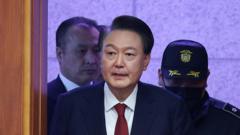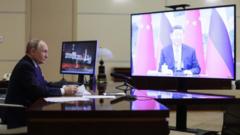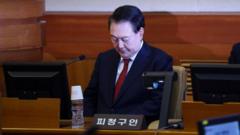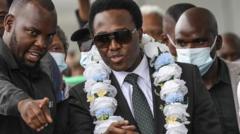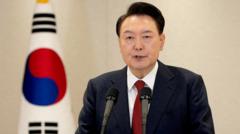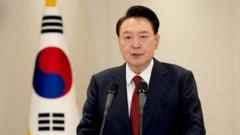In a pivotal moment for South Korea's political landscape, the Constitutional Court is set to start hearings on President Yoon Suk Yeol's impeachment. The court's eight justices will deliberate whether his declaration of martial law, which led to his suspension on December 14, was warranted. This weeks-long political turmoil has intensified public reactions across the country, with citizens vehemently divided over Yoon's fate.
South Korea Faces Critical Moment as Constitutional Court Weighs Yoon Suk Yeol's Impeachment

South Korea Faces Critical Moment as Constitutional Court Weighs Yoon Suk Yeol's Impeachment
As the nation grapples with upheaval, the court's decision could redefine political norms in South Korea.
With protests escalating, both supporters and opponents of Yoon have gathered outside the court, threatened by rhetoric of impending civil discord should the ruling not favor their side. A removal of Yoon would signify a staggering defeat for the conservative faction, marking a troubling pattern of ousted leaders in South Korea. Conversely, if reinstated, Yoon’s presidency could set a precedent where martial law is viewed as an acceptable political measure, alarming many analysts and citizens alike.
This coming trial will not only shape the future of President Yoon, but it will also reverberate throughout Korea's democratic structure, raising vital questions about the use of executive power and the resilience of democratic institutions in a highly polarized society.
This coming trial will not only shape the future of President Yoon, but it will also reverberate throughout Korea's democratic structure, raising vital questions about the use of executive power and the resilience of democratic institutions in a highly polarized society.





